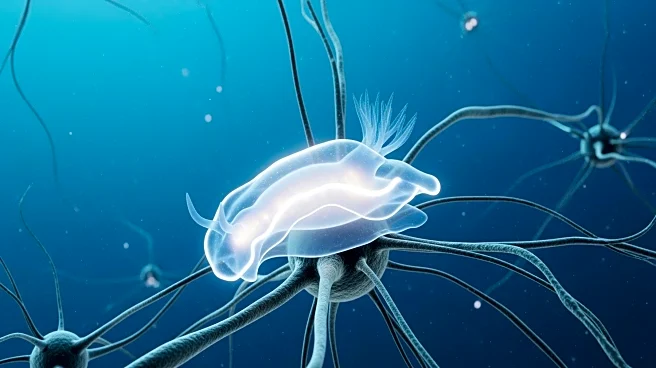What's Happening?
Recent advancements in neuroscience have led researchers to explore consciousness through the study of sea slugs, particularly focusing on how these organisms abstract information. The research highlights the ability of neurons to represent ideas without
a direct physical counterpart, challenging traditional views of behaviorism. This cognitive revolution has been facilitated by brain imaging technologies, such as fMRI, which allow scientists to pinpoint specific meanings to clusters of neurons. The study of sea slugs has provided insights into the nature of consciousness, suggesting that the distinction between objective and subjective experiences may be a matter of perspective rather than a fundamental divide.
Why It's Important?
The exploration of consciousness through sea slug studies has significant implications for understanding human cognition and consciousness. By examining simpler organisms, researchers can gain insights into the complex processes of the human brain, potentially leading to breakthroughs in neuroscience and psychology. This research challenges long-standing philosophical debates about the nature of consciousness and the mind-body problem, suggesting that consciousness may arise naturally from the brain's information processing capabilities. The findings could influence future studies on artificial intelligence and machine learning, as understanding consciousness is crucial for developing intelligent systems.
Beyond the Headlines
The study of sea slugs and consciousness raises ethical and philosophical questions about the nature of life and the mind. It challenges the notion of a distinct separation between physical and mental processes, suggesting that consciousness may be an emergent property of complex systems. This perspective could lead to a reevaluation of how consciousness is defined and studied, impacting fields such as cognitive science, philosophy, and artificial intelligence. The research also highlights the importance of interdisciplinary approaches in tackling complex scientific questions.
















